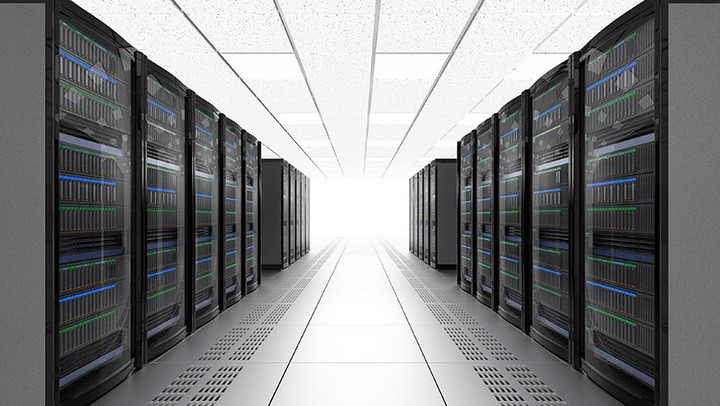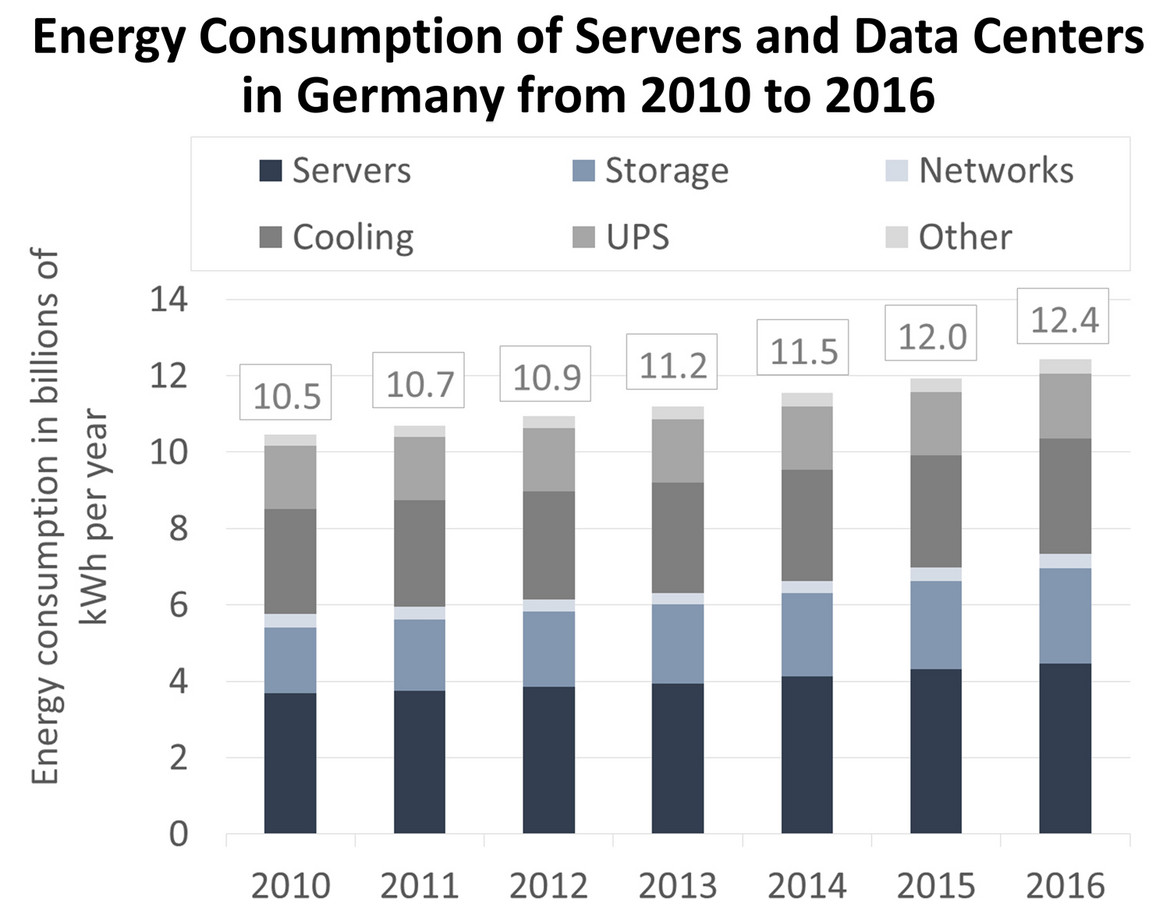Why and How the Energy Requirements of Data Centers Are Growing
Data centers have very high levels of energy consumption and this is growing continually. Dr. Ralph Hintemann of the Borderstep Institute looks at why the demand for energy is so high despite ever better energy efficiency.

© Chesky_W | iStockphoto
DOTMAGAZINE: Dr Hintemann, you and the Borderstep Institute have been researching the energy efficiency of data centers for more than 15 years. What has changed in the area of energy efficiency in that time?
DR. RALPH HINTEMANN: The energy efficiency of data centers has changed rapidly over the years. In the times of the large data center boom in the 2000s, the energy efficiency of data centers was hardly a topic of interest. Only over time was the growing power consumption of the increasing amount of IT equipment in companies recognized. IT may formerly have only been a minor power consumer like lighting, but the computers became a major source of power consumption in many companies. The power consumption of data centers increased by 150 % between 2000 and 2008. But at that time, most companies weren‘t even aware of the amount of power their IT was consuming. 10 years ago, not even 10% of data center operators were able to provide information on the power requirements of their data centers.
This is quite different today. Certainly, there are still data centers – mostly small ones – where power consumption is hardly monitored, and these often function very inefficiently. But for the overwhelming majority of data centers – and all large operators – great importance is placed on energy efficiency today. Data center operators are supported in this through ever better and more efficient technology. The efficiency of the computing power is increasing rapidly – the number of calculations per kWh doubles every 1.5 years. Computing power can be provisioned more flexibly and efficiently today through virtualization and cloud computing. The data center supply infrastructure is also improving continuously. Uninterruptible power supply systems (UPS) today achieve almost 100% effectiveness. 10 years ago, the cooling of a data center often amounted to 50 % of the power consumption, whereas today this figure is more like 20% or even less.
DOT: That is good news. Does that mean that data center power consumption is actually sinking?
HINTEMANN: No, quite the opposite. The power consumption of data centers in Germany grew strongly again in 2016, by 4.2 % to 12.4 billion kWh. This means data centers in Germany require as much power as four medium-sized coal-fired power stations produce in a year. Currently, the power requirements are actually growing more strongly than in previous years – despite the successes in the area of efficiency. The reason for this is above all the strong expansion of data center capacities in Germany. Many new data centers are being built – almost every week the press report of another new large data center is released.
DOT: What are the reasons for this new boom in data centers in Germany?
HINTEMANN: The increasing digitalization of industry and society is one important reason. More and more devices and sensors are being connected to the Internet – experts predict that by 2020 this will be around 50 billion devices. Globally, there are already around 5 billion smartphones and tablets – and central processing capacities are required for the use of most apps. The new data volumes generated every day are enormous. One example: four billion images are shared every day on social media.
Currently in Germany, another topic is also contributing to the data center expansion: the discussions regarding data protection and data security. It is a must for three quarters of German companies that the data centers where their cloud services are hosted are located in Germany. Many American Internet giants are therefore expanding their own data center capacities in Germany, in order to meet the requirements of their customers here.
DOT: How do you see the German data center market in international comparison?
HINTEMANN: Globally, energy consumption is growing considerably faster than in Germany - between 2010 and 2015 alone, the power consumption of data centers worldwide grew by 30 %. This means that the worldwide energy consumption grew at twice the speed of the German requirements. There are two main reasons why energy consumption grew less strongly in Germany. Firstly, the German data centers count among the most energy efficient data centers in the world. The German market is a leading market for energy efficient data centers. This is the case on the one hand for data centers operators – who are, in global comparison, very sensitive to the energy consumption of their data centers. But it‘s also the case for data center suppliers. Many energy efficient data center technologies come from Germany.

Source: Borderstep Institute
The second reason for the relatively moderate growth of the energy consumption of German data centers is that, despite the current boom, growth in the German data center market is average in the mid-term. Markets in Asia, North and South America, and also in Scandinavia are growing significantly more strongly. The reasons for this include the comparatively high power prices and the relatively time-consuming permission processes of data centers in Germany. The great importance of data centers for the digital economy of the future has hardly entered the awareness of German policy makers yet. Many other countries encourage the greenfield development of data centers much more strongly. In Sweden and Finland, for example, there are tax discounts for large data centers. If Germany is to take a determining role in digitalization as an attractive data center location, it will require a realignment of political ideas in a number of places here.
Dr. rer. pol. Ralph Hintemann is partner and senior researcher at the Borderstep Institute for Innovation and Sustainability. His research focuses on innovation strategies, the development of sustainable markets of the future, and the diffusion of new products and technologies, in particular environmental innovations and information and communication technologies.

Please note: The opinions expressed in Industry Insights published by dotmagazine are the author’s own and do not reflect the view of the publisher, eco – Association of the Internet Industry.


